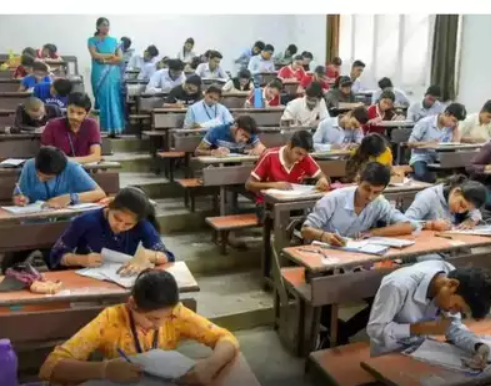In order to solve the country’s deficit of specialized physicians, the Indian Govt to Equalize PG Seats with UG Seats in Hospitals. According to official sources, this effort is expected to be completed within three years while maintaining the high quality of the courses given. The government intends to fill the existing vacuum by instituting Diplomate of National Board (DNB) courses at private and district hospitals. With the expansion in the number of medical colleges over the years, this action attempts to guarantee that the country has an adequate number of physicians.
In India, a critical scarcity of specialized doctors exists. To address this issue, the government has devised a strategy to equalise the number of undergraduate (UG) and postgraduate (PG) medical seats. The purpose of this article is to investigate the government’s policy and its possible influence on the healthcare industry.
Addressing the Specialized Doctor Shortage
India has a substantial shortage of specialized physicians, which has a negative impact on the healthcare system. Equalize PG Seats with UG Seats in Hospitals, the government hopes to generate a sufficient number of highly competent doctors to meet the population’s medical demands.
Aiming to Equalize PG Seats With UG Seats in Hospitals
The government has established a goal of having an equal number of undergraduate and graduate seats in medical schools across the country. Currently, there is a significant gap between the two, with a greater number of UG seats than PG seats. This project intends to close the gap and increase the number of chances for medical graduates to pursue postgraduate courses.
Keeping Course Quality
While expanding the number of PG seats, the government is committed to maintaining medical education quality. It recognises the significance of equipping future doctors with rigorous and extensive training. As a result, the increased number of PG seats will be supported by severe steps to guarantee that the curriculum and teaching quality remain high.
DNB Courses Are Being Introduced at Private and District Hospitals
The government intends to implement Diplomate of National Board (DNB) courses at private and district hospitals. It will help in meeting the goal of equalising UG and PG seats. DNB courses are recognised as comparable to MD/MS degrees and equip doctors with specialized training. This action will not only boost the number of PG seats, but will also improve access to specialized healthcare education.
An Increase in the Number of Medical Schools
The number of medical colleges in India has increased significantly during the last decade. There were 387 medical colleges in 2014, which has now expanded to 654. This development illustrates the government’s dedication to building a strong healthcare infrastructure and training more healthcare professionals.
MBBS and PG Seats Increase
The increased number of medical colleges has resulted in a rise in both MBBS and PG seats. The number of MBBS seats has increased by 94% from 2014, from 51,348 in 2014 to 99,763 now. Similarly, the number of PG seats has increased by 107%, from 31,185 in 2014 to 64,559 now.
Efforts by the Government to Meet the Demand for Doctors
The government recognises the country’s growing demand for doctors and has taken aggressive steps to solve it. The government intends to guarantee that healthcare services reach every part of the country. By increasing the number of medical institutions and the availability of MBBS and PG seats. These initiatives are critical in delivering high-quality medical care to the world’s rising population.
The equalisation of UG and PG medical seats in India is an important step towards closing the supply-demand imbalance for specialized doctors. The government’s intention to implement DNB courses, as well as expand medical institutions, demonstrates a positive commitment to developing the healthcare industry. This plan will not only provide chances for prospective physicians, but it will also improve the country’s overall medical education quality.























